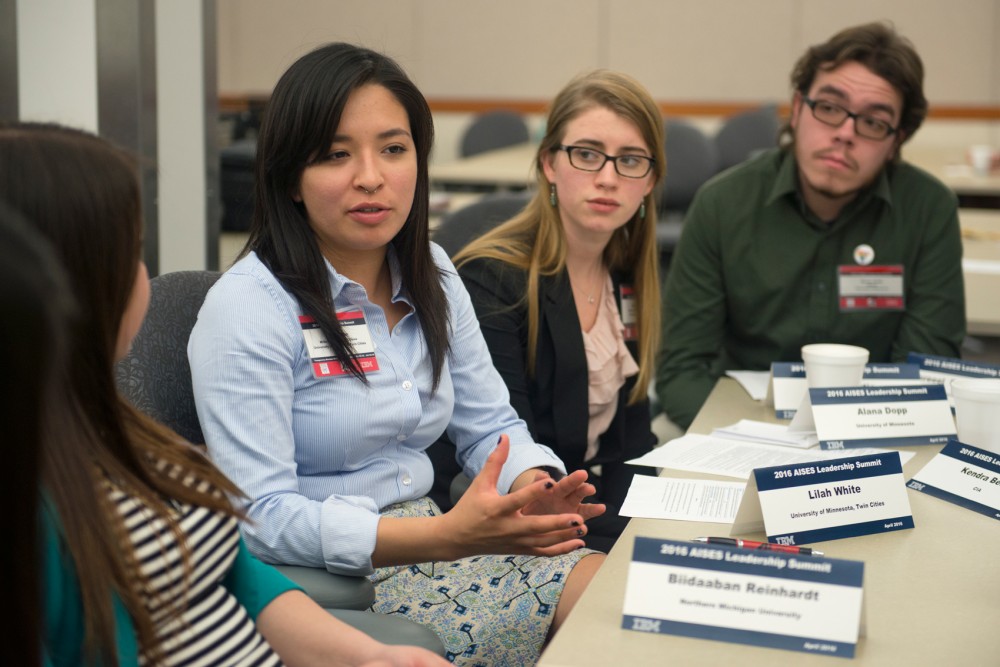Environmental studies student Lilah White said she sometimes struggles to reconcile her American Indian perceptions of nature with the curriculum in her classes.
She said some solutions to environmental crises contrast with traditional American Indian approaches to stewardship.
“I don’t really raise my hand [in class],” she said.
Native American STEM students like White gathered at a conference last weekend in Rochester, Minn., to discuss their unique experiences navigating the professional world.
The conference, organized by the American Indian Science and Engineering Society, a professional group for Native Americans in STEM fields, brought in students from across the country.
Many conference sessions focused on professional development, but University professor and AISES board member Mark Bellcourt said he organized one session that set up discussions between students and older professionals to discuss the challenges unique to Native Americans in STEM fields.
When opening his session, Bellcourt told a story about a time he was at a professional gathering mingling with colleagues. He said a woman attending the conference learned that he was teaching a course on traditional Native American environmental knowledge and later told him that what he taught was philosophy, not science.
“We experience that every day,” Bellcourt said.
Economics student Anthony Johnson said he experiences conflict in his department, where his holistic views contrast with a system that he said focuses on profit.
“You’re taught that the world exists to be used for economic advances and to further your checkbook, essentially,” he said.
This idea, Johnson said, has poisoned some tribes, citing that some Native power companies have started polluting tribal land.
“That’s a completely western ideal,” he said.
Despite the challenges of living between two cultures, some students at the conference said understanding both traditional and western perspectives presents advantages.
“We’re trained to think a certain way,” said Storm Autio, an ecology, evolution and behavior major. “We need to keep in mind these other practices we’ve come to understand and not just pick one or the other but integrate them [and] look at things from different perspectives.”
Bellcourt said he wants to see students bring these unique perspectives to their work.
“We need to be able to maintain our identities,” Bellcourt said.


